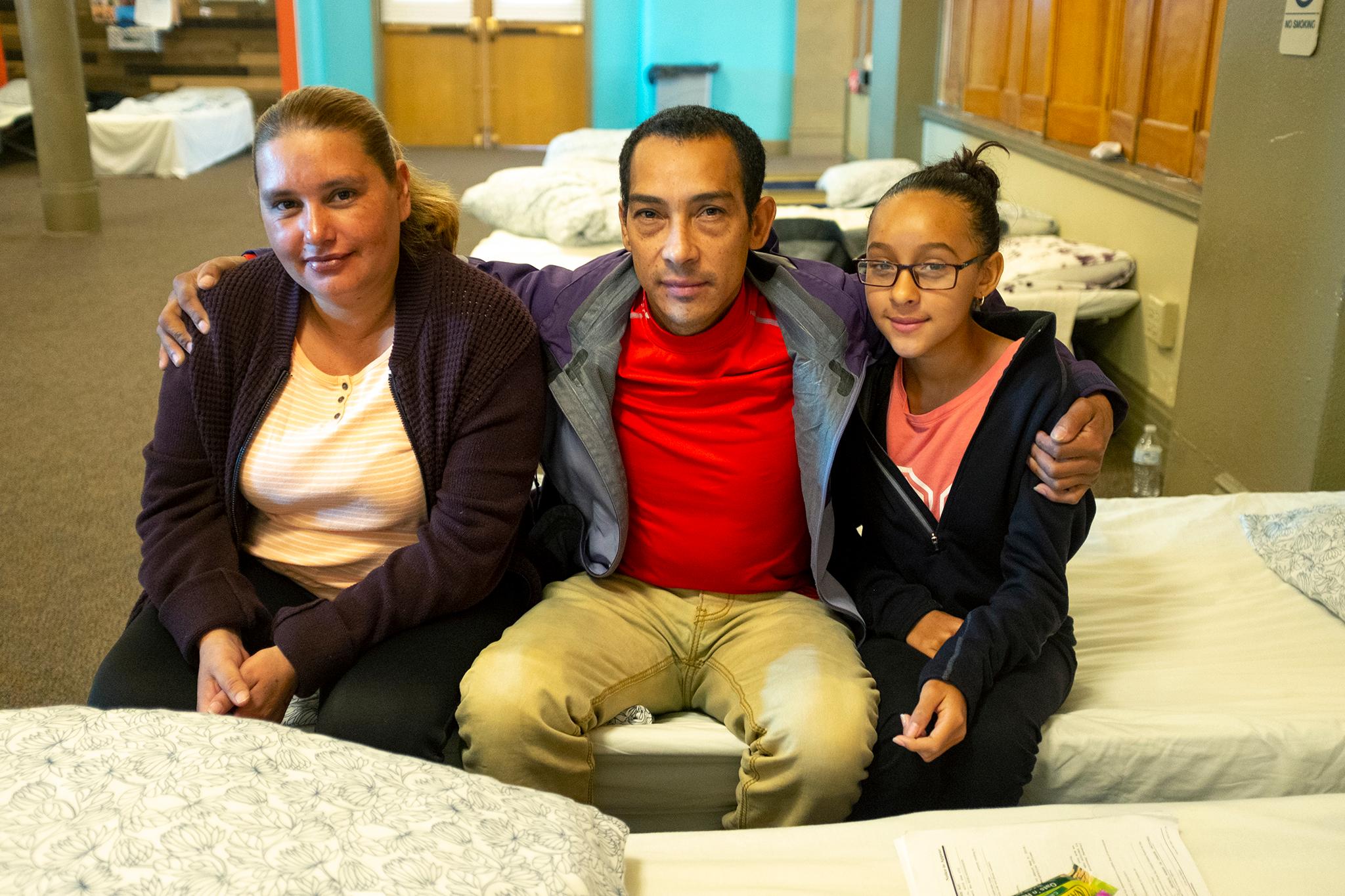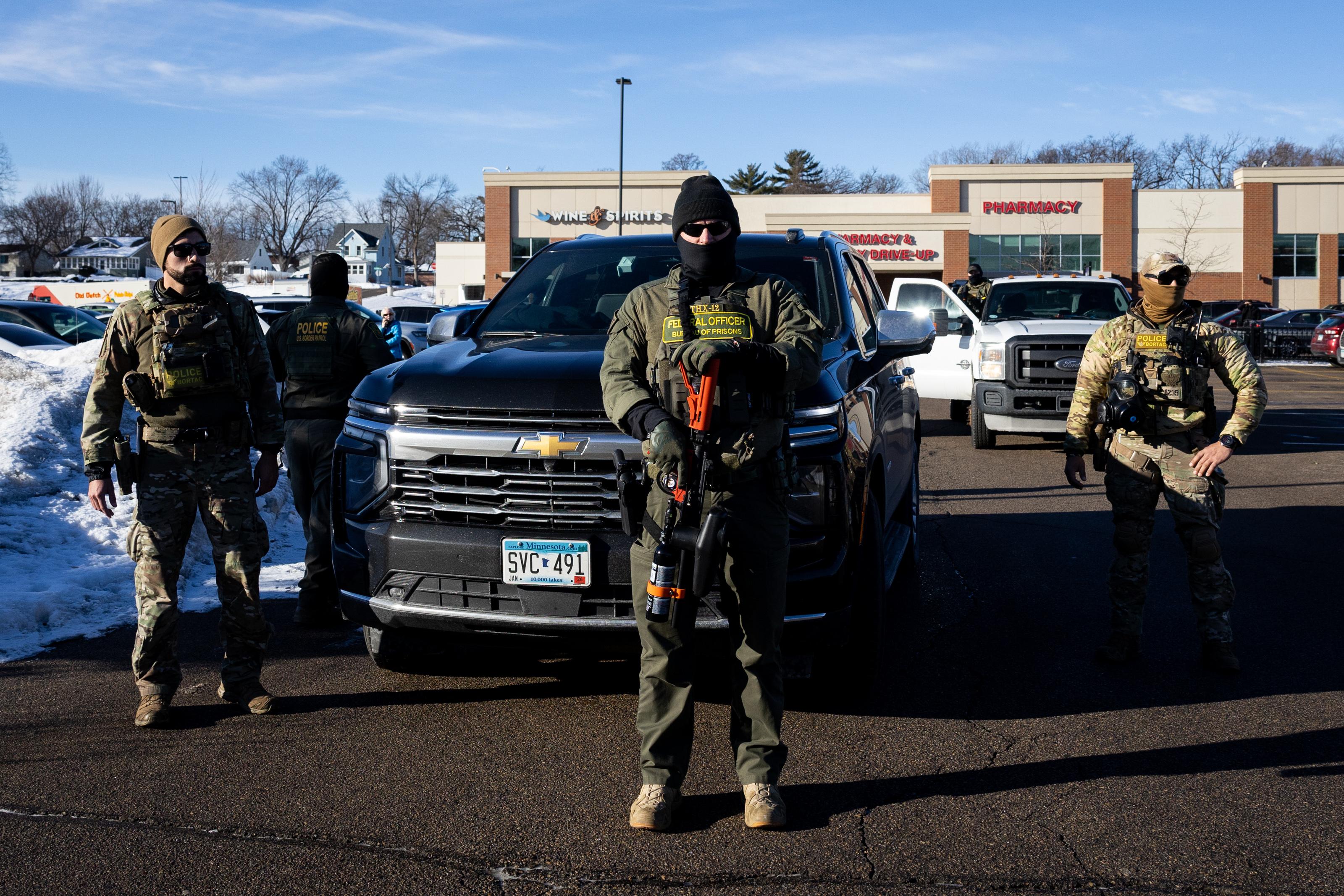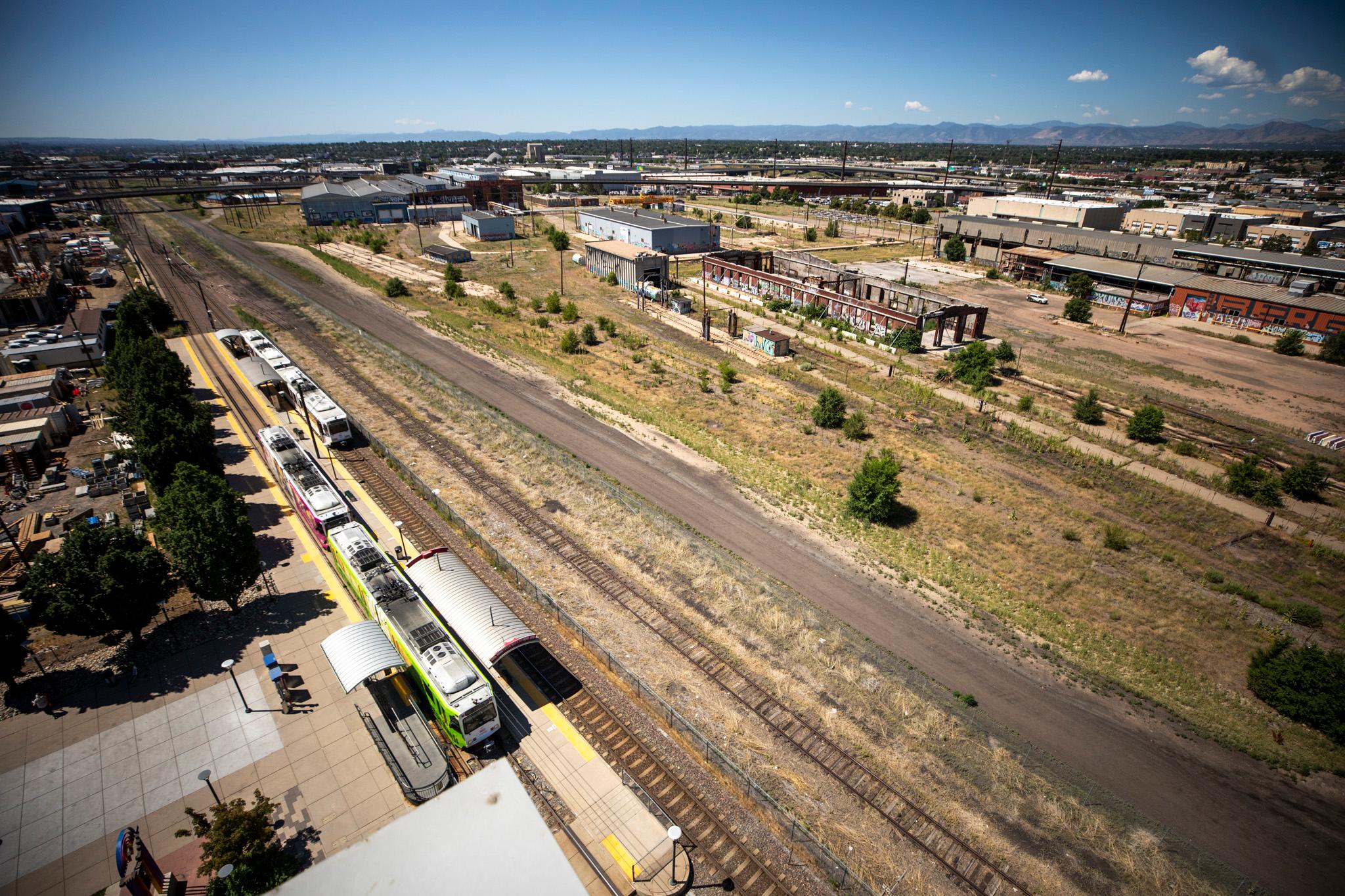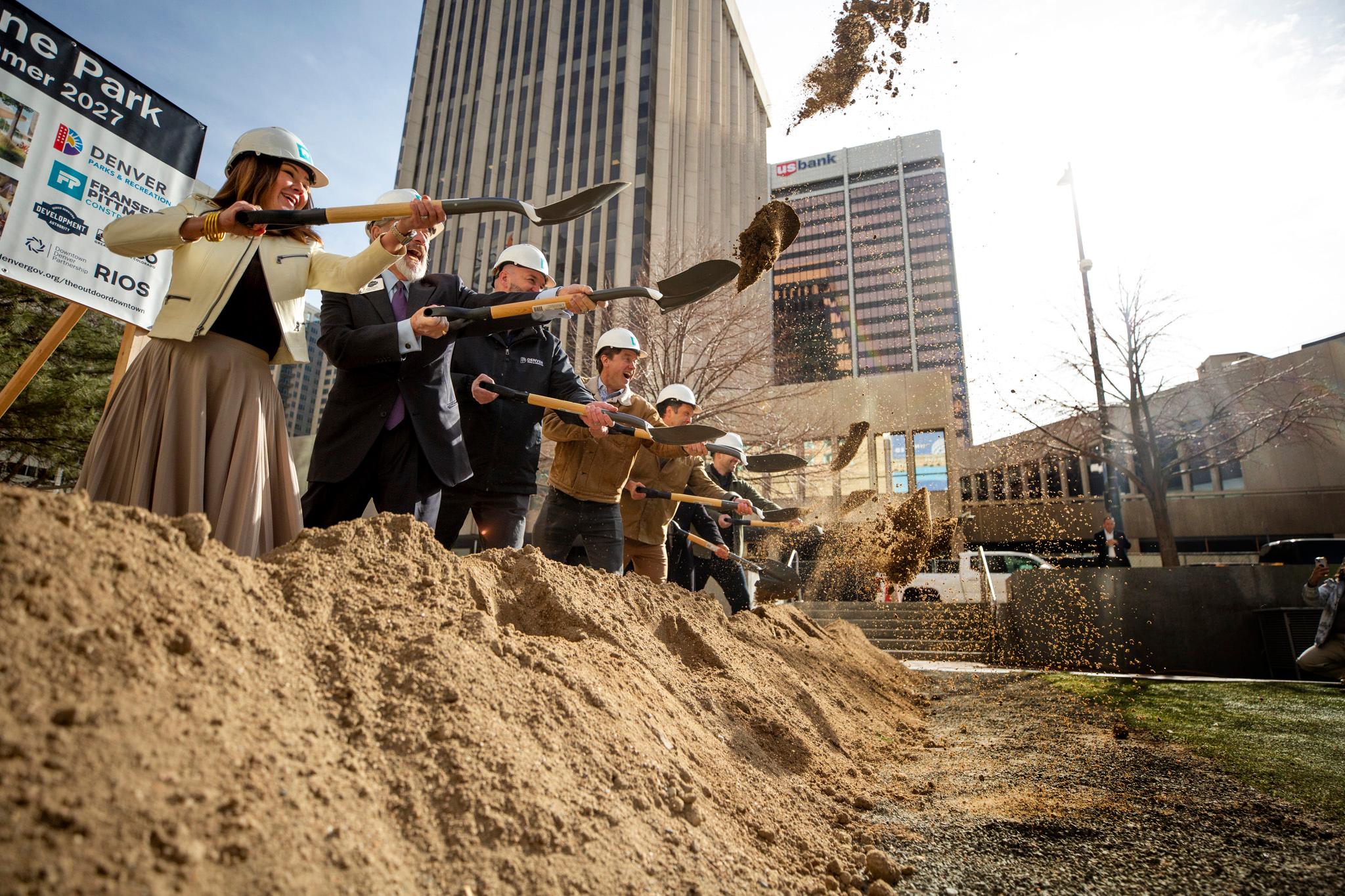Denver Community Church Pastor Michael Hidalgo received an email Saturday night telling him 55 migrants were on a bus bound for Denver.
It wasn't just any trip. It was the first time Annunciation House, a major shelter in El Paso, transported migrants outside of Texas or New Mexico for care.
Many of these people had entered U.S. Border Patrol custody and claimed asylum, then were released into El Paso, Texas and Las Cruces, New Mexico, where thousands like them were trying to make their way to stay with friends and family across the country. Local aid groups who normally help migrants get back on their feet have been overwhelmed by record numbers arriving at the southern border. As many as 1,000 people a day have been released by authorities into U.S. border cities. Organizations like Annunciation House have had to look further north for shelters, but even those outposts have filled up.
To address the overflow, New Mexico's governor chartered the bus to carry these 55 people from Las Cruces into less hectic territory. They would need a place to sleep, eat and get in contact with loved ones in the U.S. who would secure bus and plane tickets so they could finally finish their entries into the country.
Hidalgo made calls for help at his services Sunday morning. By the time the bus arrived around 2 a.m. Monday morning, more than 100 people from his congregation had volunteered to help.
Thirty-two people stayed the night inside Hidalgo's church on borrowed cots. The rest were shuttled to two other local churches. By Tuesday evening, most either had tickets or were already on the way to 15 states and Washington, D.C. The volunteers helped arrange travel, brought food, offered medical attention or just hung out with the families, many of whom had children. Jennifer Piper, an advocate with the American Friends Service Committee, said things went very smoothly with so little notice.
Now, local groups need to figure out if they will offer this kind of aid in the future. The manpower and will is there, Piper said, but it's not yet clear if they'll have the organizational capacity to handle more people overflowing from border cities.
"The issue is all of that coordination has been placed on communities, civil society organizations who never know whether they're going to be receiving 500 people or 1,000 people on a daily basis," she said.
Hundreds of Denverites stepped up to help.
Dana Miller was one of the volunteers waiting when the bus turned the corner onto Pearl Street that night.
"It was strangely balmy," she recalled. "The lights are on in the bus and one could see it was packed. As families got off they looked weary and were carrying very little other than children."
Over the next few days, more than 450 people signed up to volunteer.
One of those was Julio Mata, who was struggling to book a flight with Frontier Airlines as kids played on the Denver Community Church floor and parents rested in their cots. He said immediately felt moved to help when Hidalgo asked in his sermon Sunday morning.
"I was like, yeah, I'm going to do that. I'm going to go help however I can," he said. "I just cleared out my afternoon to spend here however I could -- especially since I'm bilingual and an am immigrant myself."
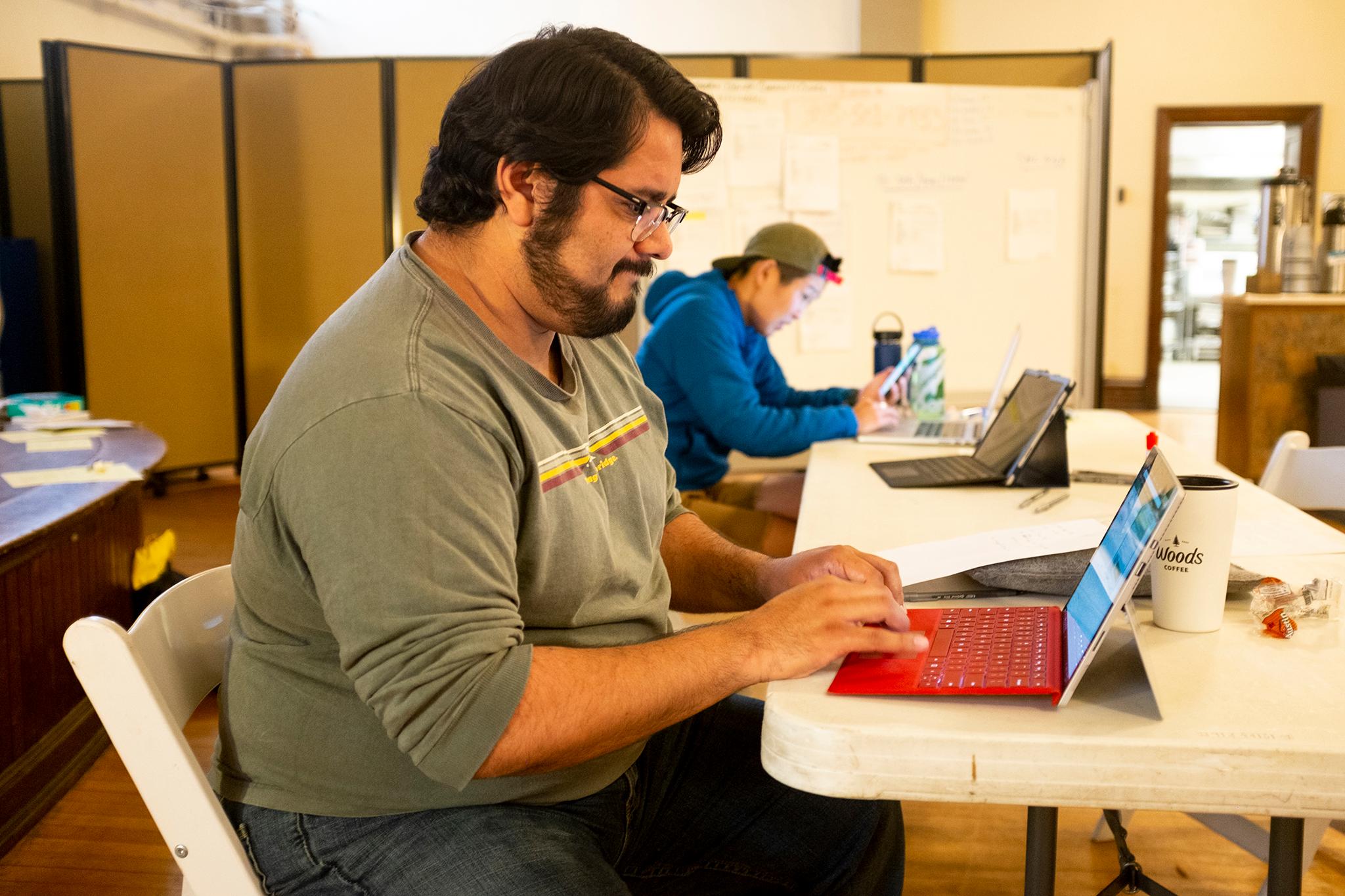
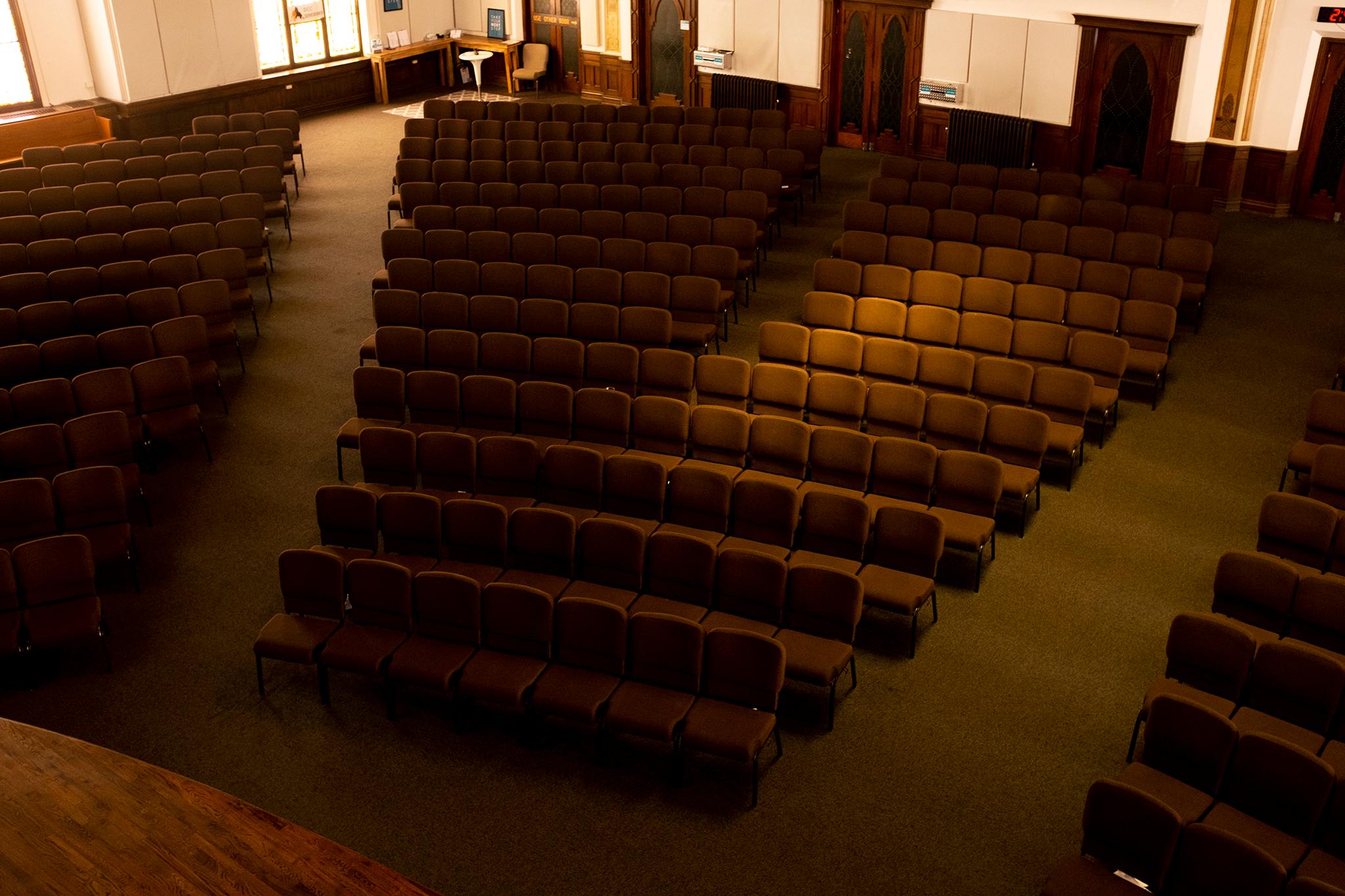
Sarah Jackson is the founder of Casa De Paz, a hospitality house and aid organization that performs a similar service for people released from Aurora's private immigration detention facility. Like Hidalgo, she sent word to her expansive list of volunteers to see if anyone would lend a hand as the migrants headed north.
"We had literally hundreds who said, 'Yes, let's help,'" she recalled. "We were turning away volunteers consistently."
Jackson and her volunteers have encountered many migrants leaving the detention center in Aurora. Those migrants' experiences, though far less crowded, are very similar to those of people released in droves at the border. Most are sent out of custody with just the clothes on their backs. Without a place to stay, they'd likely end up sleeping on the street and would have a much harder time getting connected to family in other cities.
Victor Inestroza crossed into the U.S. last week with his daughter and spent two nights sleeping outside before they were apprehended by Border Patrol. They left Honduras because "everything's bad," Inestroza said. There's not much work and too much crime. When they were released into New Mexico a day later, it was "chaos."
"The organizations are so full," he said, in Spanish. "There's nowhere to sleep. There's nowhere to bathe."
They were elated to get on the bus to Denver.
"We weren't able to wash our faces until we got here," he said.
Anibal Lopez, who was traveling with his 17-year-old son, Jorde, said they ran to catch that bus.
"There were 5,000 people and the places don't have enough room," he said. "Thank God we were able to come here."
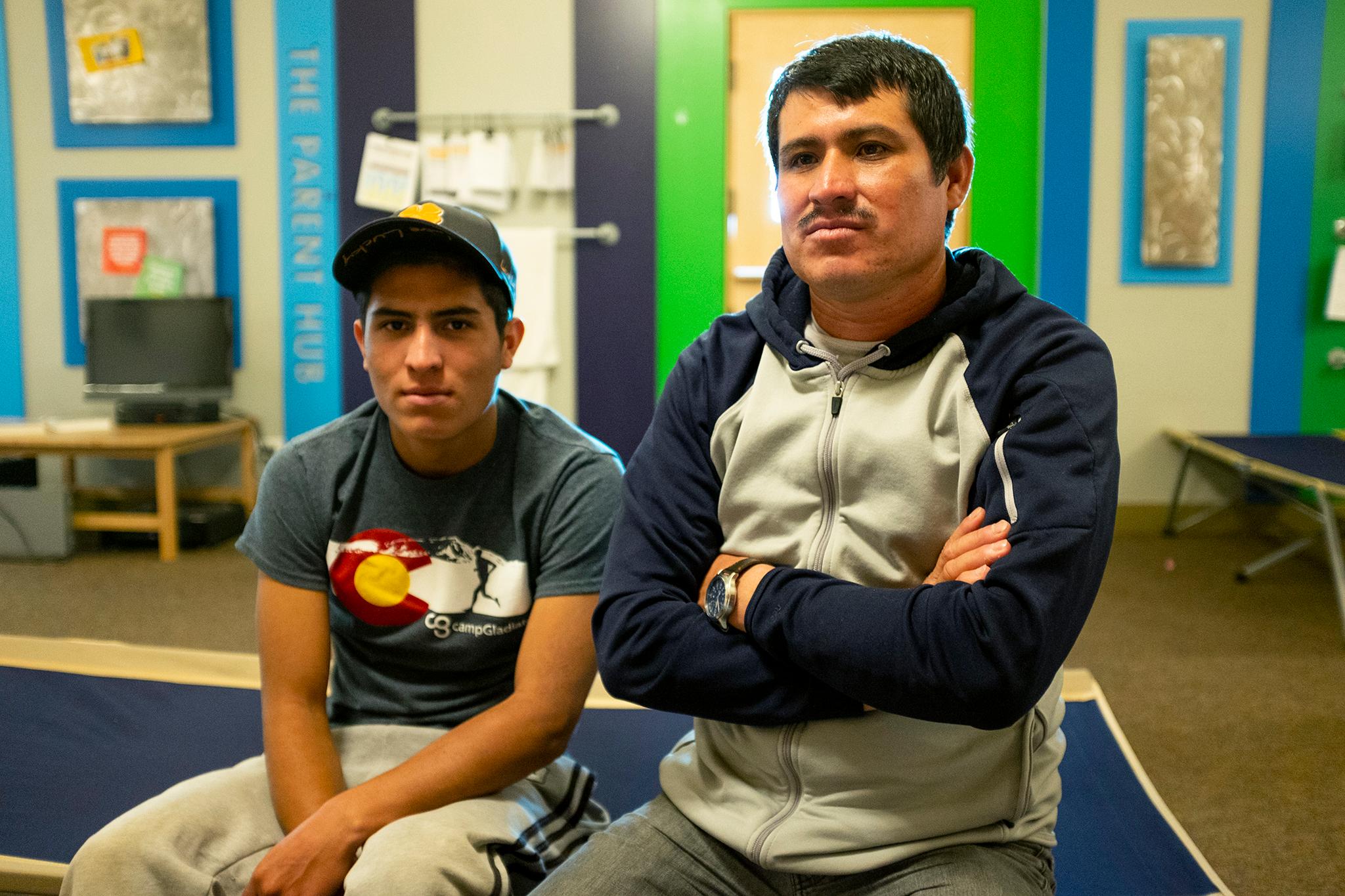
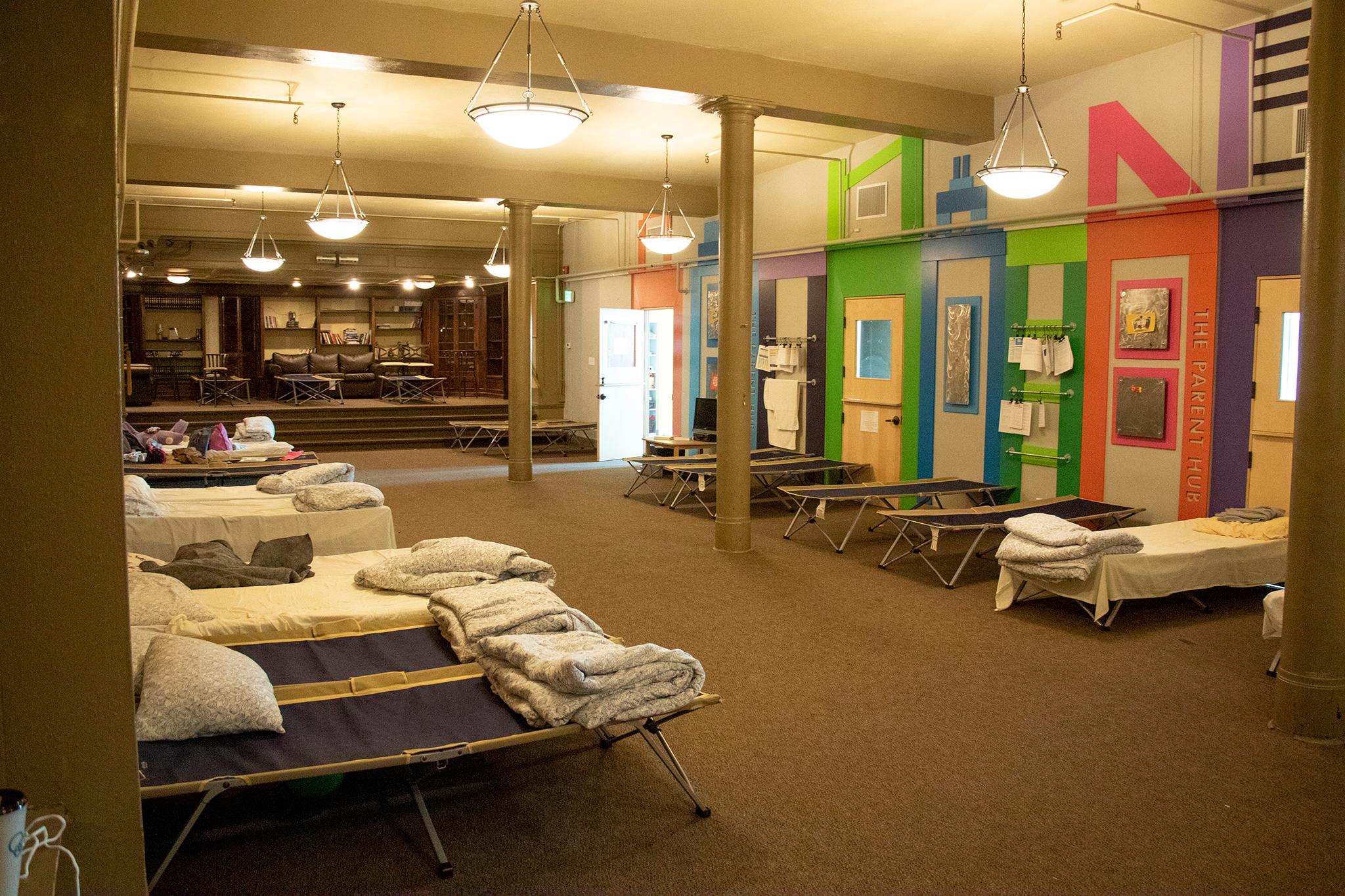
Both men said they were surprised at the hospitality they received.
"We've been really happy here. We've had places to sleep, we've had food, we've had clothing. We've never been in a place like this," Inestroza said.
"They've treated us like kings," Lopez added.
Whether or not Denver advocates can continue to help remains to be seen.
"This is not rocket science, what we're doing," Jackson said. "It's easy and it's very important."
But neither Casa De Paz nor the American Friends Service Committee has the capacity to continue offering aid to busloads of people on a regular basis.
Jackson said the groups will debrief over the next few weeks and evaluate how things might move forward.
"There is definitely an interest from nonprofits at the border to send more folks our way," she said. But, "we need a plan."
In her mind, the way forward needs to include a new organization to take the reigns.
"We're going to have to find another me or another Piper," she said. It would not be a new arm of Casa De Paz.
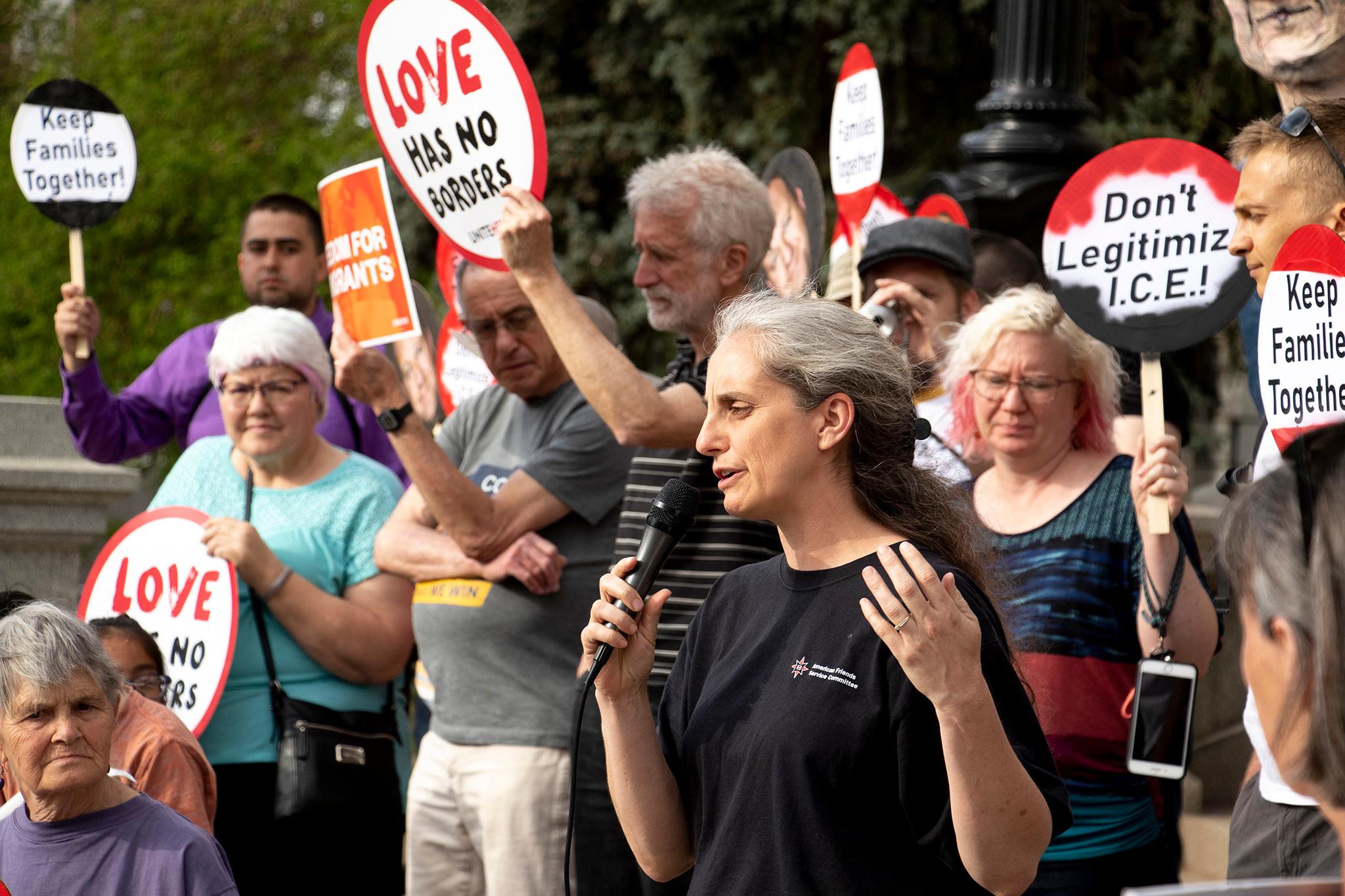
Piper said she's been contacted by multiple local organizations and agencies who want to explore the possibility of further aid.
"I think the next step will really be setting up a convening of all the organizations in Denver who serve refugees and immigrants and faith communities and really doing an evaluation," she said. "Is this something we can do on a weekly basis or on a monthly basis?"
She told Denverite one of those contacts was from the city. Nobody from Denver's Immigrant and Refugee Commission was available to comment.
While Mayor Hancock did release a statement praising advocates' efforts and directing people interested in helping to the organizations, Piper said ongoing support requires a more concrete commitment from the city.
"I don't know if we'll say yes" to accepting more busloads, she said. "That depends if city, state and other organizations step up to coordinate it, because we have a model we can pass to them but we're not big enough to do this on a regular basis."
Jackson said she could see the city helping to secure hotel rooms or schools unused in the summer to help provide roofs for people arriving from the border.
Denver City Attorney Kristin Bronson knows well the issues border cities are facing. Earlier this year, she took a trip (on her own dime) down to El Paso to meet with city leaders and aid organizations dealing with the massive influx of people.
She agreed that cities can help by easing zoning and usage requests to house people temporarily. Denver, she said, could continue to direct resources and provide a public face for the effort.
But Bronson stressed that the need for the city to step up in a bigger way might not be so imminent.
"We've not been alerted by any of the border cities that we should be expecting another similar handoff in this way," she said. "I don't want people to think this is the beginning of a really big wave. We just don't know that."
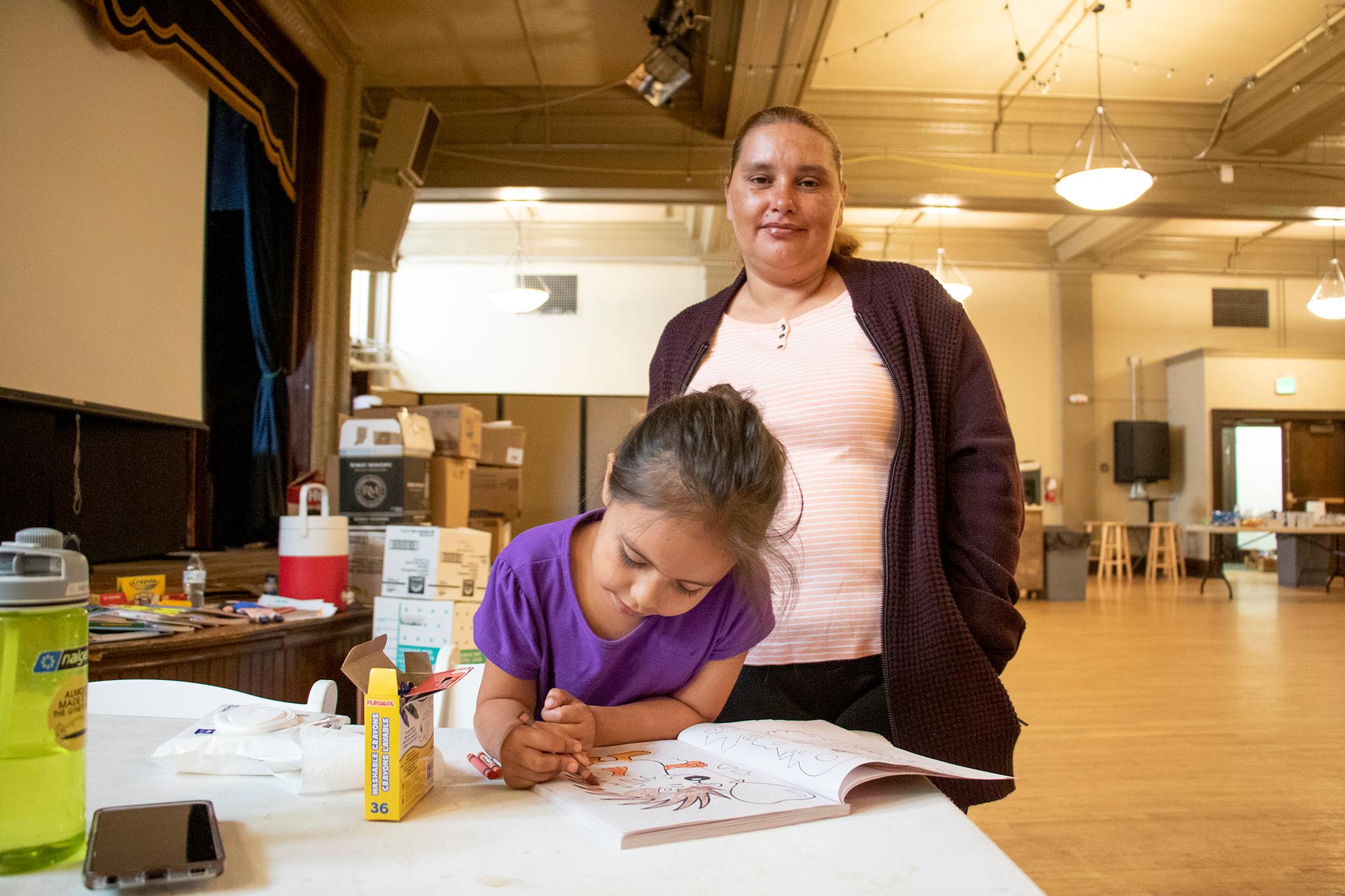
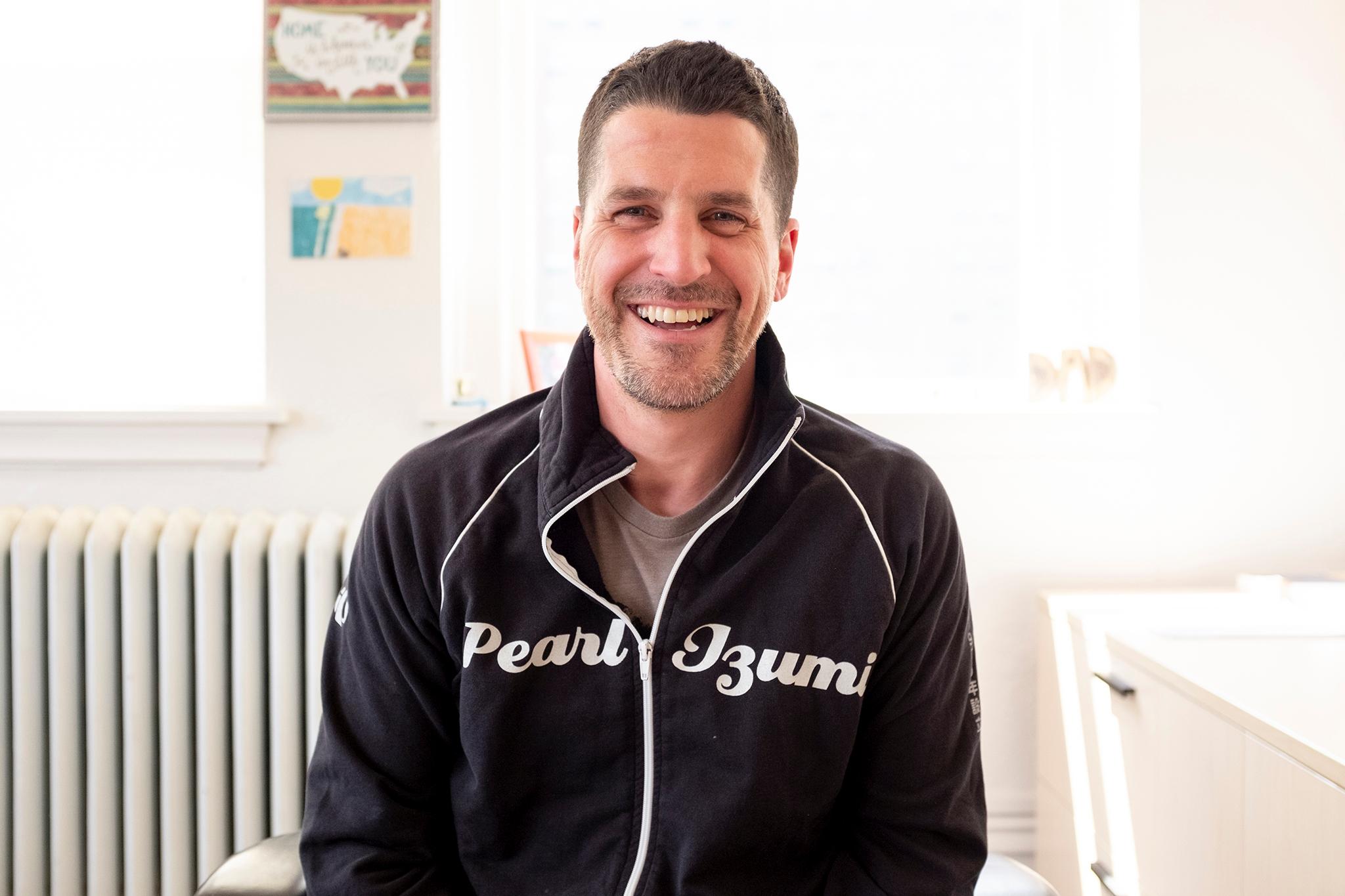
There will be Denverites ready to lend a hand if another request is made, whether or not a bigger organization has been formed to receive them.
"We are willing to serve and to meet the needs of any vulnerable group that crosses our path, whatever that looks like," Pastor Hidalgo said. "If this happens again, and if then need arises, we will say, 'Yeah. What are we called to do?'"
Correction: Due to a reporting error, this story and photo erroneously stated that Victor Inestroza and Maria Jeanette are married to each other. They are married, just not to each other.

